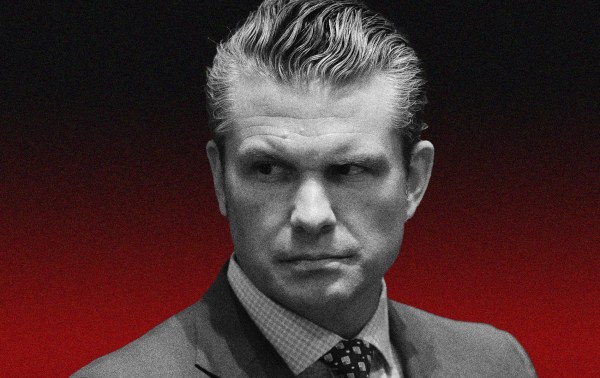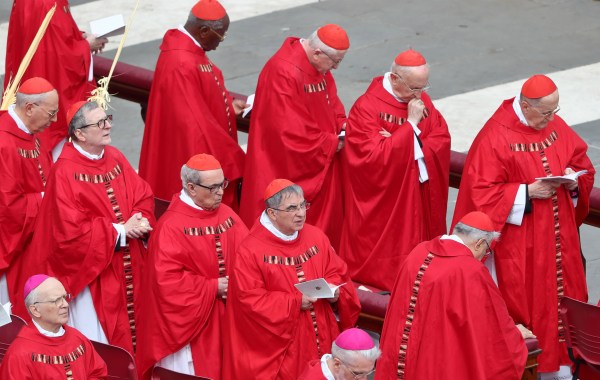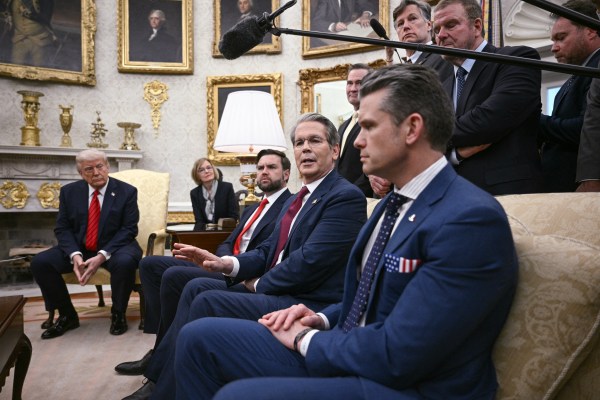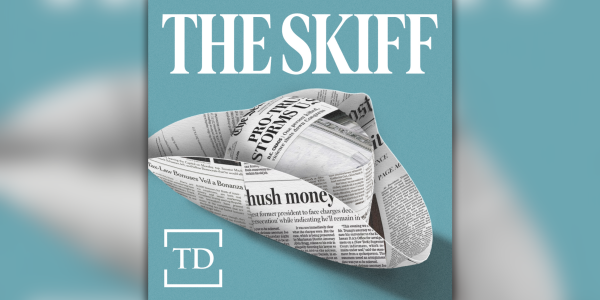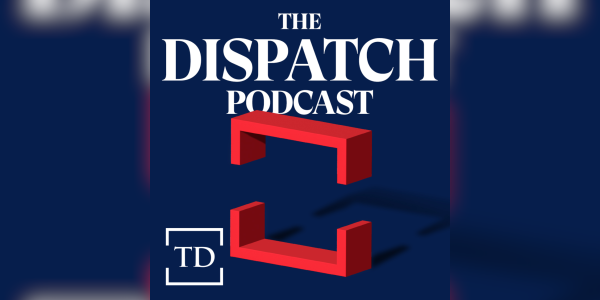Happy Tuesday! In a new study published in Current Biology, researchers observed wild chimpanzees getting together to share African breadfruit, which, once fermented, contains a measurable alcohol content. It seems even our ape brethren like to loosen up sometimes.
Quick Hits: Today’s Top Stories
- Russia carried out a series of air attacks targeting Ukraine’s Kherson region on Monday, killing three people and injuring several others. The strikes—which followed the expiration of a 30-hour Easter truce that Ukrainian President Volodymyr Zelensky accused Russia of repeatedly violating—came amid the U.S. push for a permanent ceasefire deal. Also on Monday, Russian President Vladimir Putin told Russian state television that Moscow is open to bilateral peace talks with Ukraine. If true, the position would mark a reversal from Putin’s insistence that Kyiv hold elections before any direct negotiations take place.
- Vice President J.D. Vance met with Indian Prime Minister Narendra Modi in New Delhi on Monday, hailing “significant progress” in trade talks between the two countries. According to a White House statement, the sides agreed to terms as they seek to negotiate a “new and modern trade agreement.” In February, the Trump administration and India previously agreed to double their bilateral trade to $500 billion by 2030. India faces a 27 percent tariff rate that would take effect in early July should talks fail. The two also discussed energy, defense, and technological cooperation, according to a readout from Modi’s office.
- Harvard University filed a lawsuit against the Trump administration on Monday, a week after the government announced plans to freeze $2.2 billion in grants to the Ivy League school. The decision to withhold federal funding followed Harvard’s refusal to comply with a list of demands from the administration task force formed to investigate allegations of antisemitism across dozens of American universities. In the 51-page complaint, the university accused the government of violating the First Amendment and other federal laws. “The consequences of the government’s overreach will be severe and long-lasting,” Harvard President Alan Garber said in a statement, accusing the administration of seeking to impose “unprecedented and improper control” over the private university.
- All three major stock indices tumbled on Monday, as President Donald Trump renewed his attacks on Federal Reserve Chairman Jerome Powell. In a social media post demanding that the Fed cut interest rates, the president called Powell, who heads the traditionally independent central bank, a “major loser.” Last week, Trump accused Powell of “playing politics” and threatened to dismiss him, though the Fed chair has previously said the president lacks the power to remove him without cause before his term ends in May 2026. On Monday, the Dow Jones Industrial Average fell 2.48 percent, S&P 500 dropped 2.36 percent, and the Nasdaq Composite was down 2.55 percent.
Trump v. Journalists
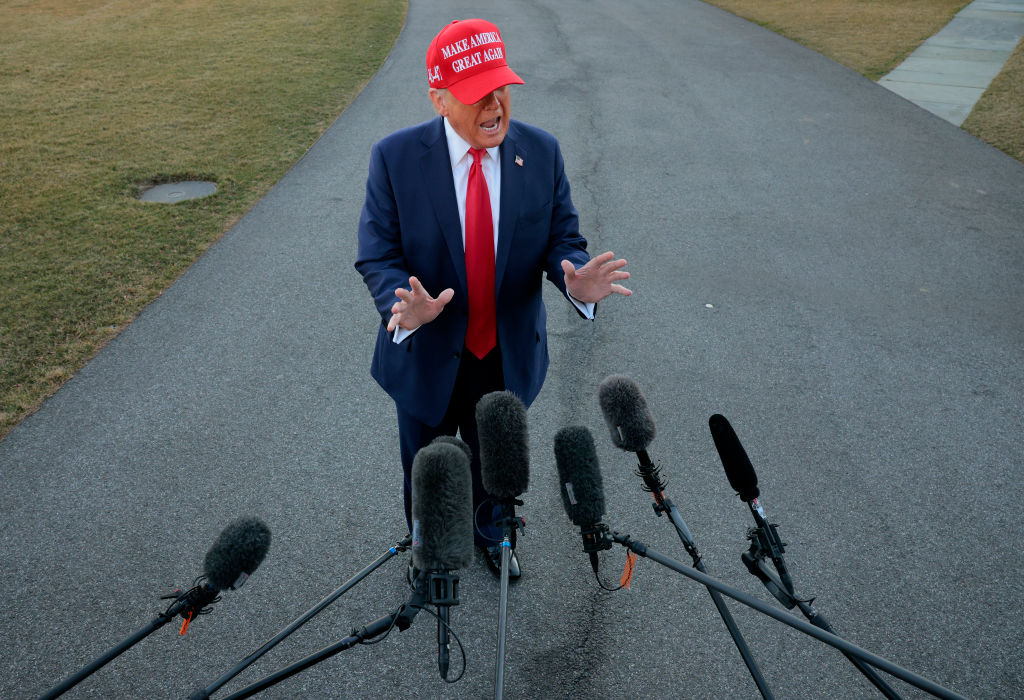
President Donald Trump isn’t getting along with the news media.
That isn’t exactly breaking news. He directed no shortage of jabs at mainstream outlets throughout his first term, but—with notable exceptions—his ire toward the media was limited mostly to rhetoric. Trump 2.0 may be different. The president’s attacks on the media have shifted from talk to action, with news organizations facing substantive retaliation for getting sideways with the new administration. And, if the escalation continues, the Trump administration could find itself running afoul of Constitutional protections—if it hasn’t already.
Presidents have long traded barbs with journalists. Former President Barack Obama notoriously tried to exclude Fox News from certain events before eventually backing down. But the Trump administration has ratcheted up the intensity, openly attacking media outlets in ways that have prompted courts to intervene.
“Trump has lobbed a number of attacks on individual journalists, institutions, and leveraged other agencies like the FCC [Federal Communications Commission] to do his bidding in going after media,” Nora Benavidez, senior counsel at the media advocacy group Free Press, told TMD. “He’s escalated in ways that I think many have found much faster and more troubling than some anticipated.”
One of the key players in the Trump administration’s escalation is the Associated Press. The saga began in January, after the AP declined to change its style guide to refer to the Gulf of Mexico as the “Gulf of America” per Trump’s executive order changing the body of water’s name. The news agency cited the global nature of its audience in continuing to refer to the gulf by its traditional name in its coverage. The White House first blocked AP reporters from an executive order signing on February 11, then from an official press conference on February 13, and a day later announced that all AP journalists—despite being part of the press pool—would not be allowed to attend events in limited spaces like the Oval Office and Air Force One.
Announcing the decision, White House deputy chief of staff Taylor Budowich said that the AP’s use of the term “Gulf of Mexico” demonstrated the outlet’s “commitment to misinformation,” and that the limited spaces will be opened up to the “many thousands of reporters who have been barred from covering these intimate areas of the administration.” The AP filed a lawsuit against Budowich, White House chief of staff Susie Wiles, and press secretary Karoline Leavitt on February 21.
The press pool—in which the AP had a permanent spot—is the small group of reporters allowed to cover the president’s day-to-day activities in smaller spaces like the Oval Office. For more than a century, an independent group called the White House Correspondents’ Association (WHCA) had determined the makeup of the pool, but on February 25, just a few days after the AP filed its lawsuit, the White House announced the Trump administration would now decide which reporters have a place the select group.
“This move tears at the independence of a free press in the United States. It suggests the government will choose the journalists who cover the president,” the WHCA said at the time. Leavitt, meanwhile, said that the change would open the door for “new media” while still allowing “legacy outlets” to participate in the pool. A similar addition happened earlier this year—the administration added a “new media” spot in the White House Briefing Room in January, and while some occupants were from mainstream publications like Axios, many were right-wing podcasters and pundits.
But AP’s exclusion, not the new outlets’ addition, drew legal scrutiny. On April 8, a federal judge ruled that the Trump administration must allow the AP into limited spaces if other members of the pool are allowed in, and it cannot ban AP journalists from White House events open to credentialed reporters. The White House appealed the ruling, but it did not get a temporary pause on the order. “What made it questionable from a First Amendment standpoint is that AP was singled out because of its viewpoint,” Robert Corn-Revere, chief counsel for the Foundation for Individual Rights and Expression (FIRE), told TMD. “And so the judge ruled that that was a violation of the First Amendment.”
Just over a week later, the Trump administration ended the permanent press pool slot for wire services—the AP, Reuters, and Bloomberg—which provide syndicated news both to local papers and international outlets. Under the new guidelines, wire services would be included in a larger group of print publications, limiting their rotation. “This is going to be subject to continuing litigation over whether or not this is just a way of trying to get around the court’s ruling,” Corn-Revere said. A federal judge already denied the AP’s request that he take immediate steps to enforce government compliance with the April 8 ruling, saying that he needs time to determine if the removal of wire services from the pool is discriminatory.
If the new policy holds, it could have a significant impact on how quickly information is reported. “Wire services have global reach and they are widely syndicated,” Benavidez said. They also publish in multiple languages. “So one of the most basic problems is that global sense of what’s happening in the United States and what Trump is doing is going to shutter,” she added.
The wire services aren’t the only publications under pressure from the Trump administration, however. In February, several publications, including NBC News, the New York Times, and Politico, were removed from their workspaces at the Pentagon in favor of a rotational program. The new outlets rotating in are One America News Network, the New York Post, Breitbart News Network, and HuffPost—with three of the four having editorial positions favorable to Trump.
Publicly funded media outlets have taken fire, too, although efforts to yank funding from public outlets have been a semi-regular occurrence over the years. In line with that tradition, the administration reportedly drafted a memo to Congress stating its intent to defund National Public Radio and the Public Broadcasting Service on the basis that the outlets spread “radical, woke propaganda disguised as ‘news.’”
But much of the focus of Trump’s media crackdown has been directed at major commercial television networks. At the end of the Biden administration, the FCC chair dismissed three complaints—some from groups aligned with Trump—accusing NBC, CBS, and ABC of left-wing bias and one petition against renewing the license of a Philadelphia Fox affiliate station that allegedly spread false, pro-Trump reports of fraud in the 2020 election. In the first few days of Trump’s presidency, new FCC chair Brendan Carr reinstated the NBC, CBS, and ABC complaints, but not the one against the Fox affiliate.
Trump has repeatedly threatened to pull broadcast licenses—which are granted to local stations, not networks themselves—from stations he sees as hostile, most recently targeting CBS for its coverage of him on 60 Minutes and for what he alleged was deceptive editing of a 2024 interview with Vice President Kamala Harris.
Carr’s investigation of CBS over its editing of its Harris interview relies on something called the news distortion policy, which was developed in the 1960s. As The Dispatch’s Grayson Logue reported in February, “the FCC doesn’t consider biased or even inaccurate news programming to be violations of this policy. Rather, it applies only when broadcast news is knowingly false or intentionally staged.” Corn-Revere explained that the policy has nothing to do with how interviews are edited. “The kinds of micromanaging decrees that we’re seeing from this FCC go well beyond what the Constitution permits,” Corn-Revere said. “The FCC makes clear that they have very limited constitutional authority, even at the peak of their powers, to try and dictate how news stories should be covered or edited.”
But these limitations have not stopped the administration from urging Carr to take drastic action. “They should lose their license!” Trump posted on Truth Social on April 13, taking exception to 60 Minutes reports on Greenland and Ukraine. “Hopefully, the Federal Communications Commission (FCC), as headed by its Highly Respected Chairman, Brendan Carr, will impose the maximum fines and punishment, which is substantial, for their unlawful and illegal behavior.”
The escalating attacks could have a deterrent effect on news coverage by making it costly for news outlets to criticize the Trump administration, legal analysts warn. ABC opted in December to settle a defamation case brought by Trump, donating $15 million to Trump’s presidential library. Trump and Paramount, CBS’ parent company, have agreed to mediation in the $20 billion lawsuit over the Harris interview, which could lead to a settlement, despite many feeling Paramount has strong legal arguments.
And, since Trump’s inauguration, there have already been significant editorial changes in some publications. In late February, just one day after the White House took control of the press pool, Washington Post owner Jeff Bezos announced that the newspaper would shift its opinions section coverage to emphasize personal liberties and free markets. “That was widely seen as sort of bending the knee to the administration,” Corn-Revere said. Whether Trump’s actions toward the media further shift the editorial direction of other publications remains to be seen.
“I think the administration sees these standard news operations as antagonists simply because they’re doing what these organizations are supposed to do,” Corn-Revere said. “But, nonetheless, they are viewed as—as the president has put it—‘the enemy of the people,’ and he is using the machinery of the federal government to try to put them down.”
Today’s Must-Read
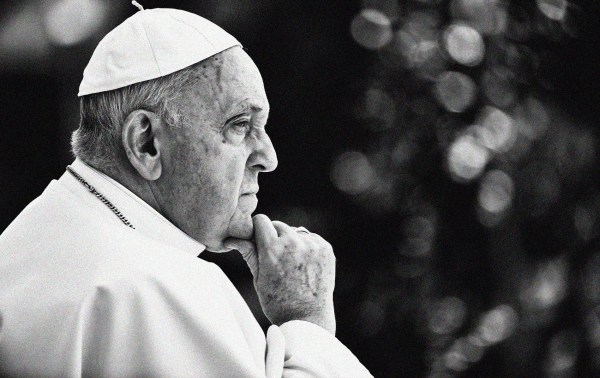
A Pope of Inclusion and Polarization
Among Pope Francis’ many moments of striking symbolism, one of the most unexpected occurred in 2019 when he met with South Sudan’s rival leaders at the Vatican. In a scene that stunned observers, the then 82-year-old pontiff dropped to his knees and kissed their feet, imploring them to keep the peace. The moment was emblematic of his belief in personal diplomacy, where grand, physical gestures often replaced formal pronouncements. In a video of the incident, you can hear the labored breathing of the pope, who had had part of a lung removed as a young man. That scene with the Sudanese leaders exemplified not only the humility for which Francis was famous but also the emphasis he laid on reconciliation and unity.
Toeing the Company Line
Worth Your Time
- Writing for Aeon magazine, Daniel R. Brunstetter shared his takeaways from the final letters of French resistance fighters and political prisoners executed by Nazi firing squads during World War II. “The last letters offer a raw portrait of grieving one’s own demise. Few of the condemned deny their fate. Some remain entrenched at the phase of depression. Others skip a phase, or oscillate between anger and acceptance, acceptance and depression. A surprising number traversed all the phases,” he wrote. “In his last letter, tempted to imagine what might have been had he had more time, [Daniel] Decourdemanche writes to his parents: ‘I dreamt a great deal, this last while, about the wonderful meals we would have when I was freed.’ But he accepts these experiences will not include him: ‘You will have them without me, with family, but not in sadness.’ Instead of regret, his mind drifts to the meaningful experiences he did live: ‘I relived … all my travels, all my experiences, all my meals.’ And at the end: ‘It is 8 am, it will be time to leave. I ate, smoked, drank some coffee. I do not see any more business to settle.’”
- What’s driving young people to Christianity? In UnHerd, Niall Gooch argued the answer may lie in the strict moral demands of modern secularism. “At its best, Christianity is not a moralistic religion — in other words, it does not place the expectation of perfect behaviour at its core. It is repentance and reconciliation, not respectability, that are central to the internal logic of the faith. The Christian moral system is also coherent and predictable,” he wrote. “Modern secular morality, by contrast, is extremely censorious and has a strongly arbitrary element, as we have seen in the last decade or so of ‘cancel culture.’ People have been subjected to storms of anonymous criticism, resulting in lost jobs and lost livelihoods, with no clear limiting principle and no real interest in proportionality. To make matters worse, this is all highly impersonal and offers no clear pathway for restoration and forgiveness.”
Politico: ‘An Amateur Person’: GOP Rep. [Don] Bacon Says Hegseth Should Go
Rep. Don Bacon, a prominent Republican on the House Armed Services Committee, became the first sitting GOP lawmaker Monday to suggest President Donald Trump should fire Pete Hegseth — calling the chaos at the Pentagon one reason why many Hill Republicans were privately uneasy with the Defense secretary’s nomination in the first place.
“I had concerns from the get-go because Pete Hegseth didn’t have a lot of experience,” Bacon, a former Air Force general who now chairs the subcommittee on cyber issues, said in an interview. “I like him on Fox. But does he have the experience to lead one of the largest organizations in the world? That’s a concern.”
New York Times: G.O.P. Leader [Rep. James Comer] Asks Attorney General Pam Bondi to Prosecute Andrew Cuomo
In the Zeitgeist
Filming has begun for Ready or Not: Here I Come!, a horror sequel set to star Sarah Michelle Gellar of Buffy the Vampire Slayer and Elijah Wood of The Lord of the Rings trilogy. The first film—about a bride who must escape her murderous new in-laws—became Searchlight’s biggest release of 2019 after grossing more than $57 million worldwide.
Let Us Know
Do you think there are reasonable critiques to be made about legacy media bias?


